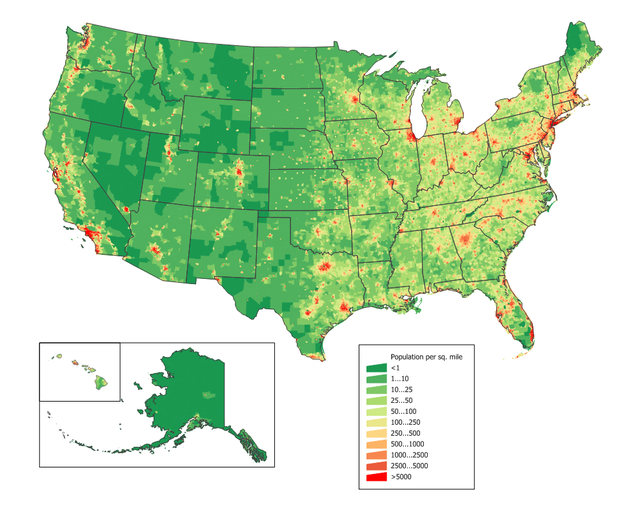"Oh, that's going to be so hard!" one of the other students said, and (seriously!) wrinkled her nose as if to say, "Oh, that's so cute!"
The teacher* was even less encouraging. "There are three hundred million people in the United States," he said, "and less than four hundred of them are able to write fiction full-time without any additional support like spousal income or from another job."

(File by Jim Irwin on Wikimedia, used by general permission)
Well, damn. That means I have such a small chance of actually making it as a full-time, professional fiction writer that my computer calculator doesn't even want to give me the number without using scientific notation with a negative decimal point (1.333*10^-4%, or 0.0001333 percent). Giving that perspective, when I applied to a Ph.D. program in Clinical Psychology in 1998, the acceptance rates for those programs were between six and eight percent, which is, by the way, less than for medical school.
But this got me to thinking. That number is way too low considering the context. Let's break it down...
First, how many people actually want to write fiction? Let's start with how many people want or like to write. Okay, I'm pulling this number out of my ass, but as we all know, 36% of statistics (including this one) are made up on the spot. So, thinking of the people I know, let's say that one third of them actually write, and that's probably a generous representation of the general population considering I tend to hang out with other writers. That brings the starting number down to one hundred million. Forty percent of the book market goes to fiction (this seems to be a fairly consistent number across sources), so the starting number equals forty million.
So, 400/400,000 = 0.1% At least we're out of the scientific notation.
Let's go a step further. Of that four hundred million, how many of them are actually serious about writing? By serious, I mean putting regular time into it (better than I have been about blog posting) and learning about the craft. For guidance, I turned to magazine circulation for the three big writing magazines: Writer's Digest, Writer Magazine, and Poets & Writers. Yes, my assumption is that people who are serious enough to study the craft of writing will subscribe to magazines. Here are the numbers:
Writer's Digest: 110,000
Writer Magazine: 30,000
Poets & Writers: 60,000
Sure, I'm not hitting everyone, but I'm sure there are others like me who take more than one, so we'll make the assumption that non-magazine reading serious writers are covered by the overlap. The total is now 200,000, and thank you, statistics gods, for the nice, round number!
One more step: lots of people start books, but who is serious enough to actually finish a manuscript and go through the agony of submitting it? For this, I turned to the acceptance rates for M.F.A. programs. These are the type of talented, driven people I feel like I'm up against. According to the Almighty Google, who has been very helpful with this process, creative writing M.F.A. acceptance rates are between 2.5 and 5%. So, that brings our number down to a range of 5000-10,000. Going with our initial starting point of 400 successful career fiction writers, the chance of success then becomes four to eight percent. This was actually close to my chances of getting into a clinical psychology Ph.D. program, which I did. And took four semesters of statistics, in case you couldn't tell.

(File from Wikimedia)
Am I making a lot of assumptions with this process? Yes. Do I know for sure what my chances of making it as a fiction author are? No. But I have time to find out, a supportive spouse, and a day job that I enjoy. By the way, the teacher who first handed down that dour statistic has since become one of my biggest supporters who has said that he thinks I have what it takes. I'm going to take him up on his challenge to become number four hundred and one.
The kind of math I like: dessert on graph paper plate at Chocolate by the Bald Man in Philadelphia.

